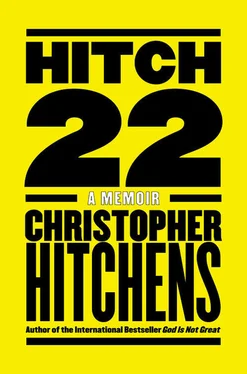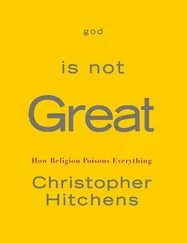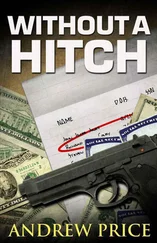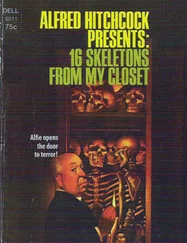In fact Jefferson was born under the old calendar, on 2 April 1743, and had to change his birthday to the thirteenth when the historic Gregorian calendar date-shift was ordained. Both dates appear on his memorial obelisk at Charlottesville. I have often wondered what the racketeers of astrology and the zodiac did when everybody had to change birthdays and many people had to change their “sign.” No doubt they managed to adjust suavely enough.
There is flag-waving and flag-waving. When the giant statue of Saddam Hussein was pulled down from its plinth in Baghdad in April 2003, I was annoyed to see an American soldier step forward and drape a Stars and Stripes flag over the fallen visage of the dictator. This clearly disobeyed a standing order prohibiting display of the American colors. But then I learned that the overenthusiastic soldier was Marine Corporal Edward Chin, an ethnic Chinese volunteer both of whose parents had escaped the hell of Burma and begun a new life in Brooklyn. The offense might have been worse.
Very well captured by Colin McInnes in his contemporary novels City of Spades and Absolute Beginners.
It can and should be remembered that many religious texts, not least the sacred hadith of Islam, prescribe horrible penalties for those who apostasize from religion, even if they were only born into it without their own consent. This does somewhat qualify the “voluntary” principle and it, too, had its part in the campaign to murder Salman. Nonetheless, I insist on my distinction between this man-made phenomenon and that of “race.”
Later on, the working staff of these bookstores passed a resolution saying that they were not selling bananas or condoms, and would honor the professional duty to provide any customer with any book. And they were the ones standing by the plate-glass windows. I wish this example were better remembered, and more emulated, than it is.
“Salmanovitch,” I have since learned, was Koestler’s rendition into Russian of “Solomonovitch,” the surname of an Israeli-Jewish editor he had known, and a great foe of the Jabotinsky-Begin ultranationalists. Staying with nomenclature for a bit, “Rushdie” itself was derived as a family name by Salman’s father, who annexed it from Averroes ibn-Rushd, the great medieval scholar of the Jewish-Christian-Muslim synthesis that flourished in Andalusia before the zealots and dogmatists extinguished that brief candle.
Since I speak and write about this a good deal, I am often asked at public meetings, in what sometimes seems to me a rather prurient way, whether I myself or my family have “ever been threatened” by jihadists. My answer is that yes, I have, and so has everyone else in the audience, if they have paid enough attention to the relevant bin-Ladenist broadcasts to notice the fact.
I had thought I might never see Norman Mailer again after I had asked him, on a TV show with Germaine Greer, whether he’d ever wondered about his apparent obsession with sodomy and its male occasions (the barracks, the prison, the boxing gym, even in Harlot’s Ghost the interstices of the “intelligence community”) as well as its more notorious female ones. In the “green room” afterward, he reacted extremely badly, seizing a copy of Tough Guys Don’t Dance and inscribing it to me with a minatory sentence that told me to beware of his next interview. When that was eventually published, in a London magazine called The Face , it contained his accusation that the London literary scene had been rigged against him by a homosexual coterie dominated by Martin Amis, Ian Hamilton, and myself. Martin and I dallied briefly with the idea of writing in to say that this was very unfair —at least to Ian Hamilton. After the fatwah , though, Mailer became more friendly. Never to be outdone when the electricity of violence was in the air, he initially had to be talked out of a hyper macho scheme to raise money for a retaliatory “hit” against the Ayatollah but renewed contact with me because, I suppose, my own position made me look a bit less like a faggot.
Including one favorite of mine, The Ground Beneath Her Feet , which is almost written to music.
Recently declassified papers show the British embassy in Baghdad reporting back to London in these terms: Saddam’s accession to office was “the first smooth transfer of power since 1958” and, though “strong-arm methods may be needed to steady the ship, Saddam will not flinch.”
I used to make a point, later on in Washington, of arguing that no operations in Iraq should ever again be given the stupid code-name prefix of “Desert.” Mesopotamia is not a desert.
Today, in an echo of the Latin American vernacular about those who were, rather than had, “disappeared,” Kurdish people describe certain towns or groups as having been “Anfalled.”
Kanan got his museum, and the Memory Foundation is now an archive for victims and survivors whose narrative would otherwise never have been set down. This remarkable achievement remains a continual cause of spite and resentment.
I had of course heard that Ahmad had once been indicted—by a military court in Jordan when it was Saddam’s ally—for being a shady businessman. I have also read persuasive evidence that this was a frame-up, as were many other charges—“puppet of the CIA,” for one absurd example—that were made against him. My main difference with him is, and remains, his alignment with a confessional bloc in the Iraqi parliament. But without him, there might well not be an Iraqi parliament.
See, for the best account of this upheaval in real time, James Fenton’s book The Snap Revolution.
To be fair, Ian McEwan’s highly acute novel Saturday , which is easily the best evocation of this street-theater event, does capture the anguish of many “liberals” who did turn out. His work was also the first to isolate the unstinting self-regard that underlies the terribly OK-seeming mantra of “Not In Our Name.”
It impressed me very much to see my Kurdish friends, including Iraq’s first-ever democratically chosen president, Jalal Talabani, publicly voice their opposition to the death penalty for Saddam Hussein and the other convicted war criminals. This appeal to clemency arose partly from their adherence to the Socialist International and also from their wish to begin Iraq again without a blood reckoning. After what they had endured, their forebearance was something extraordinary. In Kurdistan itself, where tribal retributionism was not so much in evidence, Barham Salih personally declined to sign death-warrants for the Islamist gangsters who had murdered his guards and very nearly slain him on his own doorstep.
This document was originally published by my old friend Patrick Cockburn, perhaps the best chronicler of the war and certainly its most fervent and intelligent critic.
This verifiable account is often confused with a bungled attempt to sell some forged documents from the embassy of Niger in Rome: a false trail that, whether out of cupidity or design, wasted the time of several already time-wasting “inquiries.”
Читать дальше











